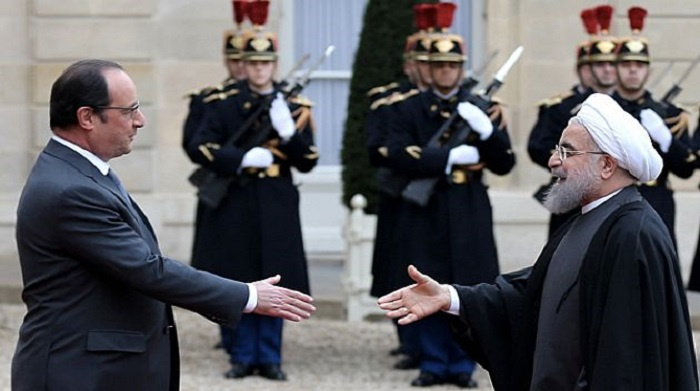Rohani’s Visit to Europe: Moving towards Active Foreign Policy

President Rohani’s visit to Europe has opened a new chapter in the economic relations between Iran and the countries of this continent. Some analysts believe that this visit will have an unprecedented impact on the production, trade and, in general, economy of Iran. That is why most of the criticisms and analyses about this visit have been concentrated on the economic aspect. But it should not be ignored that the mere presence of the presidents of Iran and European countries on the two sides of a table will have deep political meaning as well.
The history of the past four centuries of Iran is defined by its relations with European countries. During this long period of time, Iranian politicians have witnessed all kinds of behaviors from Europe and experienced their different tactics and strategies along the lines of their interests; hostility, cold war, neutrality, isolation, cooperation, coalition, strategic alliance; thus, it can be said that Iranian politicians have become experts in the establishment of relations with Europe. Obviously, Iran cannot ignore Europe and vice versa. Now the question is, following the tense period of relations between Iran and Europe and now that a new chapter has started in this regard, what policy is going to be pursued by Iranian politicians to safeguard the security and our national interests?
Iran’s Ministry of Foreign Affairs was able, during the past two years, to pursue diplomatic discourse. Following the successful outcome of the nuclear dossier, our country has bypassed the threatening atmosphere against Iran and, by reaching stability, it is going to experience new opportunities. If Iran’s diplomacy in the past was based on passive diplomacy, it is now time for active diplomacy. It is obvious that innovative diplomacy which is aimed at construction, progress and welfare is much more difficult than resistance diplomacy.
Under such historic conditions, it seems that the foreign and security policies need macro-plans which must carefully be chosen and implemented. An analysis of the actions of the politicians and diplomats of the country during this short period of time indicates that Iran’s foreign policy seeks development. This idea can be defined as a solution to reach the prospect of a developed Iran with foreign policy tools. On this basis, the three main strategies of development-seeking foreign policy are:
1-Attracting international resources for development: Even if a country has rich internal resources, it cannot provide all of its needed resources domestically and it must achieve part of it from international circles.
2-Establishing and maintaining stability: There is a direct relation between stability and possibility of development. If chaos dominates the security atmosphere of a player, it should make great efforts to fight against it and there will be no opportunity to advance development.
3-Collective opportunity: The path towards development must be presented as an opportunity for all and not a threat.
Therefore, what is observed in the deepening of economic and political relations of Iran with Europe is part of a long-term strategy towards development-seeking foreign policy, the outcome of which is the transformation of the Islamic Republic of Iran into an active power in different economic, political, and energy areas. The success of the country in playing an active role relies on the mobilization of the executive power of all internal departments and an expert approach towards regional and global issues and crises.

